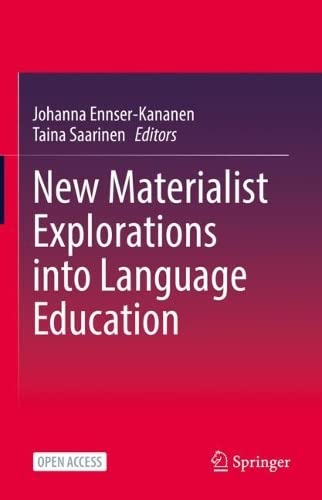

Most ebook files are in PDF format, so you can easily read them using various software such as Foxit Reader or directly on the Google Chrome browser.
Some ebook files are released by publishers in other formats such as .awz, .mobi, .epub, .fb2, etc. You may need to install specific software to read these formats on mobile/PC, such as Calibre.
Please read the tutorial at this link: https://ebookbell.com/faq
We offer FREE conversion to the popular formats you request; however, this may take some time. Therefore, right after payment, please email us, and we will try to provide the service as quickly as possible.
For some exceptional file formats or broken links (if any), please refrain from opening any disputes. Instead, email us first, and we will try to assist within a maximum of 6 hours.
EbookBell Team

5.0
30 reviewsThis open access book analyzes language education through a socio-material framework. The authors revisit their position as researchers by decentering themselves and humans in general from the main focus of research activities and giving way to the materialities that are agentive but often overlooked parts of our research contexts and processes. Through this critical posthumanist realism, they are able to engage in research that sees society as an ethical interrelationship between humans and the material world and explore the socio-materialities of language education from the perspectives of material agency, spatial and embodied materiality, and human and non-human assemblages.
Each chapter explores language educational contexts through a unique lens of (socio)materiality. Based on how the authors conceptualize (socio)materiality, the book is organized in three sections that seek answers to the following overarching questions:
Each chapter questions, in its own way, the notion of the human subject as rational, enlightened being and sole possessor of agency, and offers examples of allowing for other-than-human agency to enter the picture. Together, the contributors exemplify how researchers who have been committed to social constructionist thinking for most of their careers learn to make space for new theories, thus inspiring and encouraging readers to remain open for new intellectual and embodied endeavors.